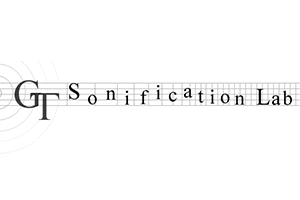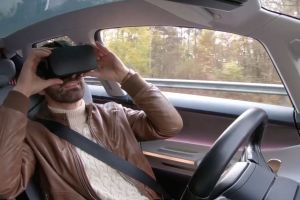The advances in VR hardware have resulted in a growing number of contexts in which such devices are used. For example, the growing adoption of VR devices in homes and offices will create user expectation to continue using their device in transit. In other words, users are not limited to using VR devices in dedicated spaces and can extend their use to more dynamic real-world environments. While this makes VR devices more accessible to a wider range of users and can benefit them extensively, it has implications for their physical and psychological wellbeing, one of which is being distressed due to not being aware of the real world while immersed in the virtual world. One remedy to this issue is providing users with information about the real world in the virtual environment. This project investigates the effect of providing this information on usersaEU(tm) virtual experience, wellbeing, and behavior in the dynamic real-world environment.

The Georgia Tech Sonification Lab is an interdisciplinary research group based in the School of Psychology and theSchool of Interactive Computing at Georgia Tech. Under the direction of Prof. Bruce Walker, the Sonification Lab focuses on the development and evaluation of auditory and multimodal interfaces, and the cognitive, psychophysical and practical aspects of auditory displays, paying particular attention to sonification. Special consideration is paid to Human Factors in the display of information in "complex task environments," such as the human-computer interfaces in cockpits, nuclear powerplants, in-vehicle infotainment displays, and in the space program.
[Random Image of Auditory Interface] Since we specialize in multimodal and auditory interfaces, we often work with people who cannot look at, or cannot see, traditional visual displays. This means we work on a lot of assistive technologies, especially for people with vision impairments. We study ways to enhance wayfinding and mobility, math and science education, entertainment, art, music, and participation in informal learning environments like zoos and aquariums.
The Lab includes students and researchers from all backgrounds, including psychology, computing, HCI, music, engineering, and architecture. Our research projects are collaborative efforts, often including empirical (lab) studies, software and hardware development, field studies, usabilty investigations, and focus group studies.



